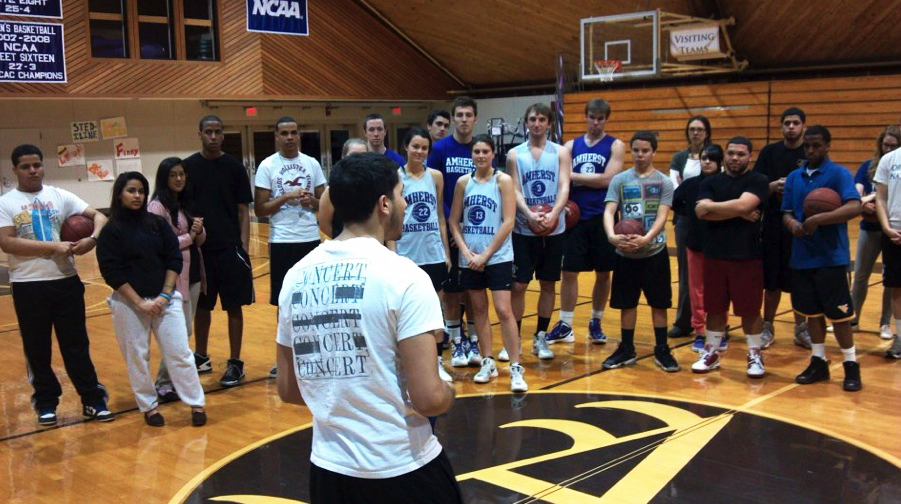

Both the men’s and the women’s basketball teams enjoyed very successful seasons this winter. The men’s team entered post-season play in both the NESCAC and NCAA tournaments, earning their fifth NESCAC title and ending their formidable run in the Sweet Sixteen. The women’s team earned an undefeated regular season, snagged their fourth NESCAC title and made their way to the semifinals of NCAA play. But perhaps more impressively, both teams took a time out while in season to work together on a community engagement project. On Feb. 13, the men’s and women’s teams held a basketball coaching clinic for the second time with members of Project Coach.
The aim of Project Coach is to train high school and middle school students to be coaches of youth sports teams. The program fosters healthy after-school activity choices, encourages an active lifestyle and trains effective leaders.
“The program is designed to give these students opportunities to spend their free time productively,” men’s basketball player and Center for Community Engagement Athletics Liaison Roshard Bryant ’13 explained. “We’re building leadership in a community that needs it.”
About 30 high schoolers and middle schoolers that are a part of the Project Coach team gathered in Lefrak Gymnasium to learn from the NESCAC’s best. The 30 coaches were using the clinic to prepare to lead their teams, a league of local elementary schools, in their upcoming season. The night was spent working the aspiring coaches through a series of skill-specific stations.
“We focused on defense, lay-ups, shooting technique and passing,” teammate Connor Johnson ’12, who helped organize the event, noted.
The teams taught the future coaches the necessities for teaching these skills to younger players. At the end of the night, the head coaches of both teams touched on the intangibles of coaching, effective communication and being a role model for your players, among other key teaching points.
“We have a pretty big appreciation for being on a team and the benefits that come from that,” Johnson continued. “To be able to give someone else the skills to create that environment, that opportunity for others, is really great.”